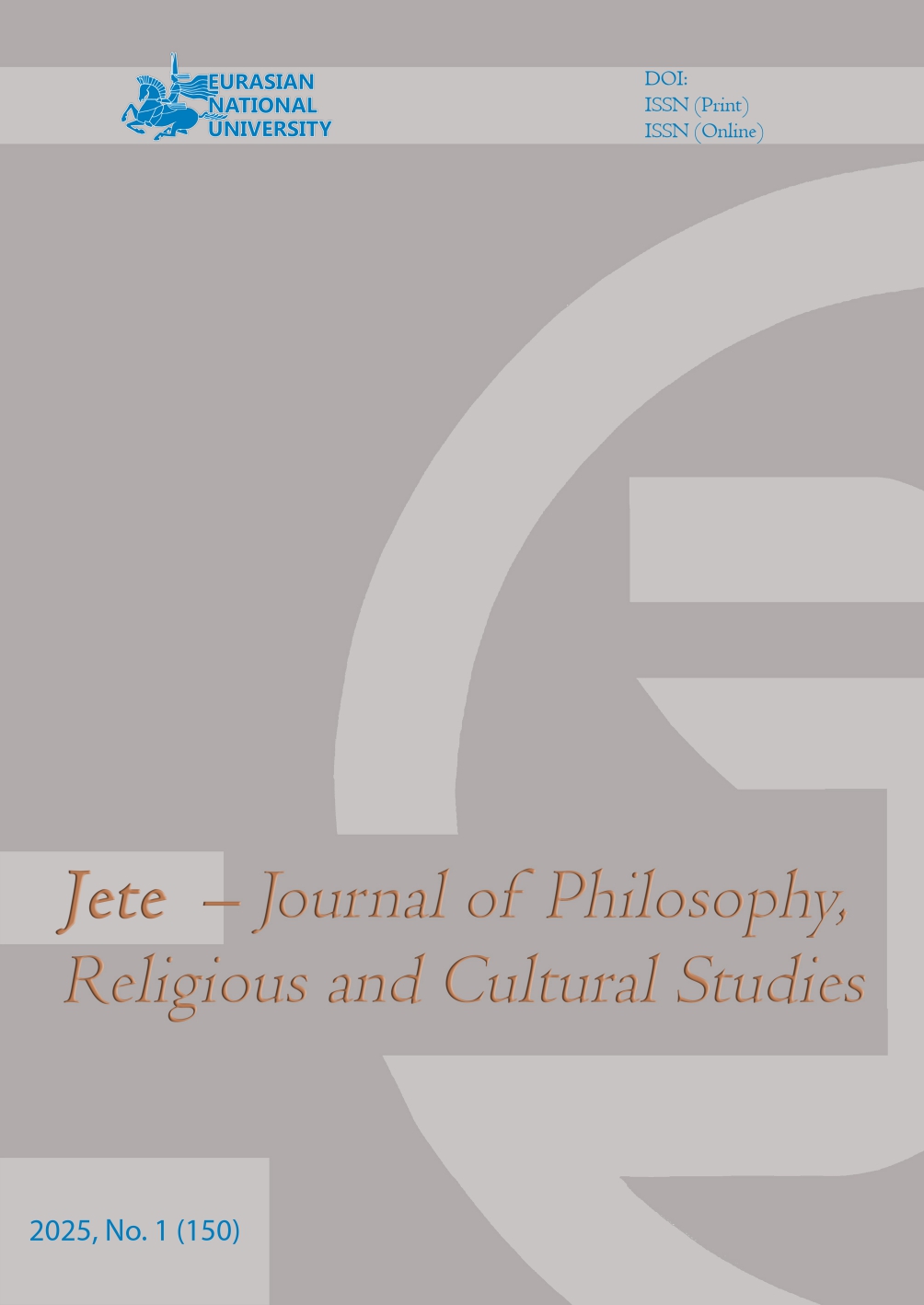Философиялық дискурстағы сандық инклюзия: Қазақстан мен Беларусьтегі мемлекеттік бағдарламаларды талдау
Қаралымдар: 286 / PDF жүктеулері: 127Кілт сөздер:
цифрлық инклюзия, цифрлық эксклюзия, цифрландыру, цифрлық алшақтық, философиялық дискурс, мемлекеттік бағдарламаларАңдатпа
Мақала Қазақстан Республикасы мен Беларусь Республикасындағы цифрландыру және цифрлық технологиялар саласындағы мемлекеттік бағдарламаларды талдауға және олардың қазіргі заманның философиялық және этикалық тұжырымдамаларымен арақа- тынасын зерттеуге бағытталған. Мақаланың мақсаты жеке адам мен бүкіл қоғам үшін осы тұжырымдаманың мағынасын философиялық тұрғыдан түсіну контекстіндегі цифрлық инклю- зияны зерттеу және цифрлық алшақтықты жоюға және әлеуметтік әділеттілік пен тұрақты дамудың негізгі аспектілерінің бірі ретінде цифрлық технологияларға тең қолжетімділікті қамтамасыз етуге бағытталған Қазақстан мен Беларусьтің мемлекеттік бағдарламаларын сыни талдау болып табылады. Бұл зерттеуде герменевтикалық, компаративистік, тарихи әдістер, және антропоцентристік тәсіл қолданады. Зерттеу нәтижесінде Қазақстанның мемлекеттік бағдарламалары – “Цифрлық Қазақстан” және Цифрлық трансформация тұжырымдамасы, сонымен қатар Беларусьтің Цифрлық экономика мен ақпараттық қоғамды дамытудың мемлекеттік бағдарламасы және “Беларусьтің цифрлық дамуы” мысалында білім беру және әлеуметтіксекторларүшінбелгілібірсын-қатерлертуғызатынцифрлықдамужәнеинклюзивтілік мәселелерін шешудегі диспропорциялар анықталды. Мақалада технологиялық прогресс пен адам қажеттіліктері арасындағы тепе-теңдікке қол жеткізу үшін цифрлық трансформация стратегияларын қайта қараудың маңыздылығы және цифрлық даму бағдарламаларындағы екі елдің қоғамын дамытуда адамға бағытталған тәсілдің басымдығы көрсетілген.
Downloads
Жүктеулер
Жарияланды
Журналдың саны
Бөлім
Лицензия
Авторлық құқық (c) 2025 Айнур Абдина, Анар Уызбаева, Елена Кучко

Бұл жұмыс Creative Commons Attribution-NonCommercial-NoDerivatives 4.0 Дүние жүзінде.








